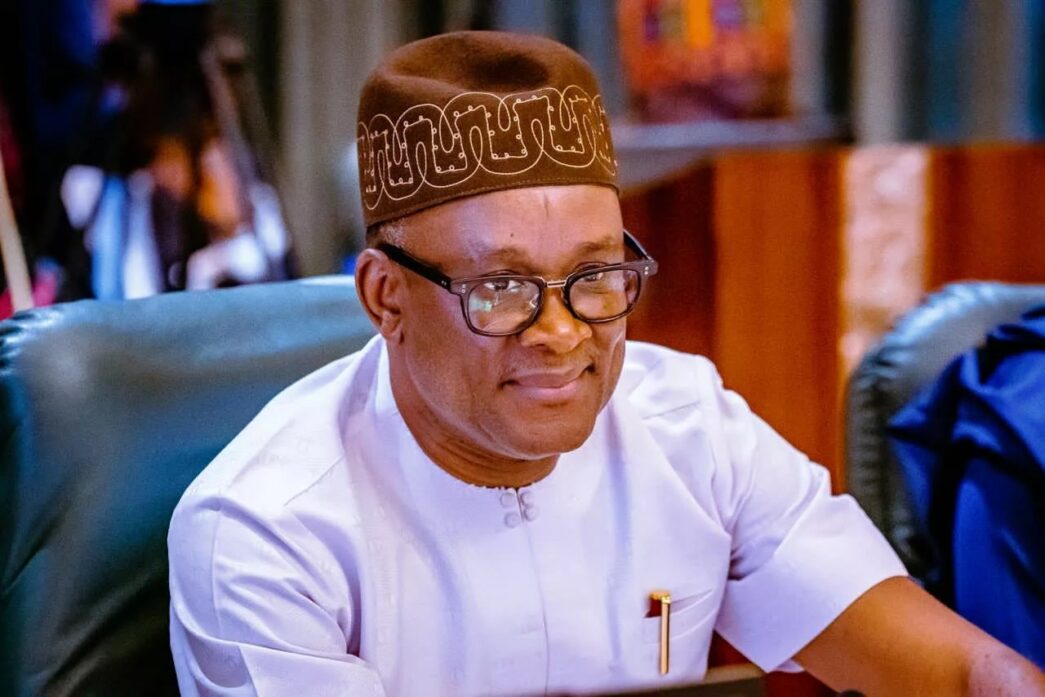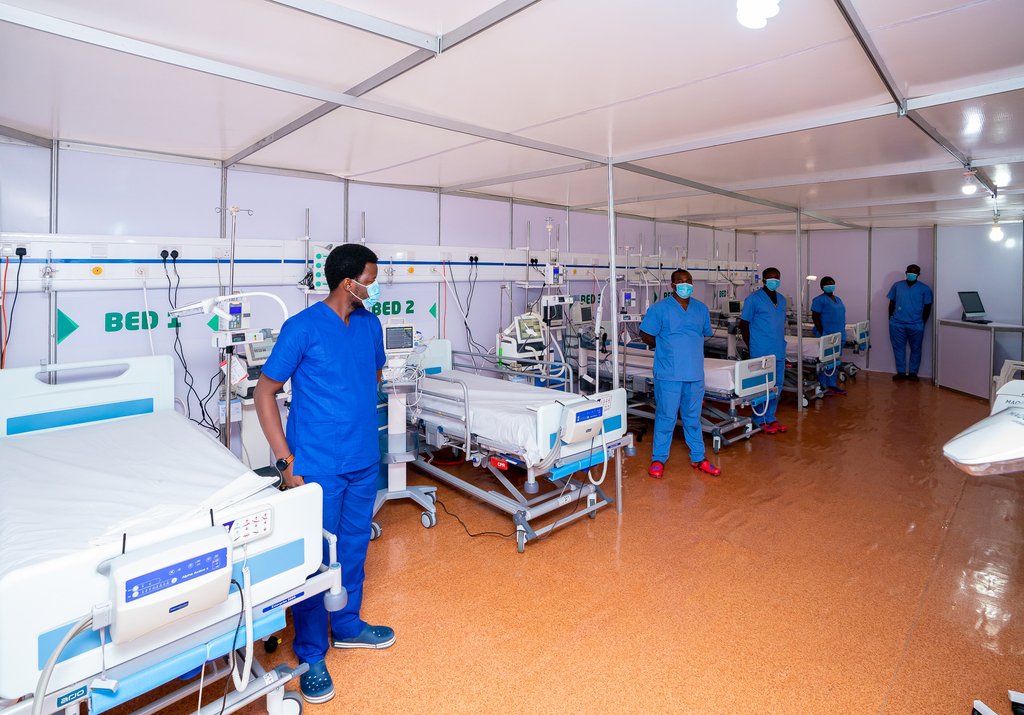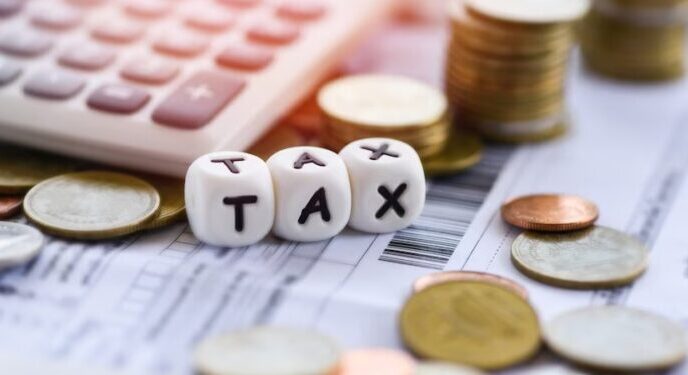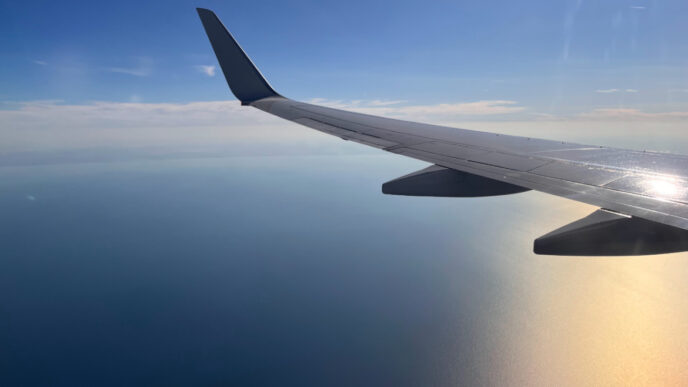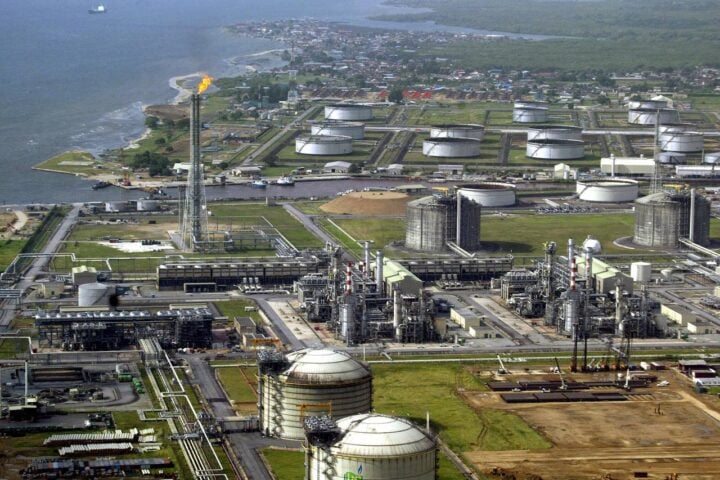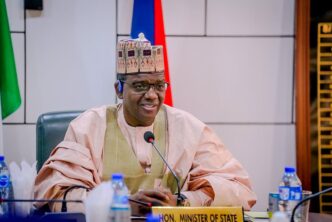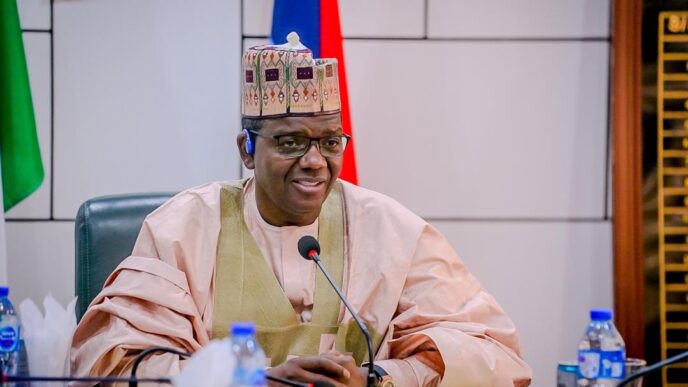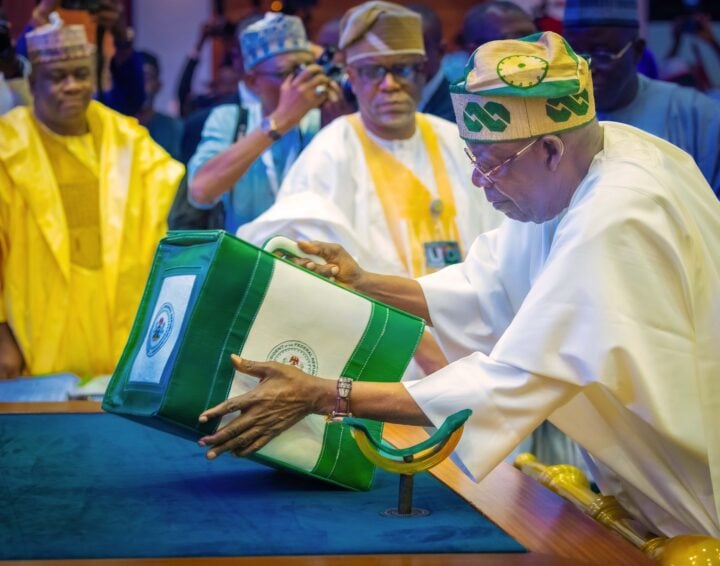BY KEN EGBAS
Nigeria’s greatest literary export, Chinua Achebe, once said, “When the moon is shining, even the cripple becomes hungry for a walk.” In the past few days, I have read with a mix of shock and disappointment the social media outcry from uninformed individuals calling for the removal of the Minister for Sports Development, Senator John Owan Enoh.
This uproar stems from Nigeria’s participation in the recently concluded Paris 2024 Olympics, where the country returned without a medal from the first half of the sporting spectacle. I say the first half because the Paralympics, which will soon kick off, is yet to deliver its results. The onslaught of criticism against the minister, fueled by ignorance and misinformation and sometimes deliberate mischief, is indeed disheartening, and it compels me to address the situation.
When John Owan Enoh was announced as the Sports Minister designate, the media buzzed with the rhetoric: “Owan who?”—similar to the reaction when Arsenal Football Club appointed Arsène Wenger in 1996, with the popular refrain, “Arsène who?”. Wenger, who was headhunted from the little-known Japanese club Grampus Eight, would go on to revolutionize Arsenal, English football, and leave behind a legacy that solidified Arsenal as one of the biggest clubs in world football today. I believe Minister John Owan Enoh’s story will mirror that of Wenger’s, despite the current campaign of calumny against him.
Advertisement
The minister’s struggles are not just with the challenges of the sports sector but also with the prejudices against people from less prominent ethnic groups. How can one rationalize the notion that a seasoned technocrat— with a background as a university teacher, who first served for eight years as a member of the Cross River state House of Assembly, has served twelve years as a House of Representatives member, chaired several national key committees, served a term as a senator, successfully administered multiple enterprises, created economic opportunities for countless people, and is a respected political leader—is not experienced enough to administer sports in Nigeria?
Those who understand the complexities of the sports industry in Nigeria know that what is needed is a leader who comprehends the sector’s problems and is willing to take tough decisions to free it from the entrenched interests that have hindered its progress for the past sixty years. This leader must prioritize the welfare of Nigeria’s athletes and insist on doing what is right, even if it means facing backlash. Minister Owan Enoh has set out to do exactly that from the onset and has remained unwavering, despite the narratives being pushed by critics who lack a true understanding of the situation.
In my over a decade at the top of sports media and as a sports management consultant, I have interacted with some of the most influential and respected voices in the industry. When Minister Owan Enoh was assigned the sports ministry, he reached out to me, owing to our relationship of over fifteen years. We had a lengthy conversation about the state of sports in Nigeria and the necessary steps to take. I was impressed by how much he had learned within a few days of his appointment. His enthusiasm and sense of history convinced me to work under him, as he expressed a strong desire to build a foundation for sports to thrive like never before in our history. President Bola Tinubu promised to provide him with all the support needed to succeed, and the minister’s commitment to this goal has been unwavering.
Advertisement
The minister developed the JOE Six-Point Agenda for Nigeria Sports Development, which he later acronymized as The President Bola Ahmed Tinubu Sports Development Roadmap (W.A.I.F.A.R). This roadmap, unveiled on December 19, 2023, focuses on the Welfare of Athletes, Activation of the Sports Business Industry, Infrastructure Development, Funding for Sports Development, Activation/Institutionalization of Early Age Sports, and the Reorganization of Sports Federations for Impact. Since taking office, the minister has engaged in extensive consultations with stakeholders across the country, ensuring that their views, aspirations, and hopes were captured in this plan.
The issues are deep and requires a lot of tact, guile and patience to circumvent. Nigerians need to understand this. In 11 months, Minister Owan Enoh has recorded the following wins-
- To deal with issues of funding in sports, he has had several engagements with key private sector players to raise funding for sports development. In June, the sports ministry recorded a first in our national history by signing an agreement with Yanga Technologies Limited to raise over 40 billion naira over the next four years for sports development in Nigeria. There remains other ongoing conversations that would yield even more to ameliorate the funding issues bedeviling sports in Nigeria.
- For many years, Nigeria had run afoul of The World Anti-Doping Agency (WADA) in and out of competition statute. Not Many know that Annette Echikunwoke who won a silver medal at the Paris 2024 Olympics competing under the flag of USA was stopped from representing Nigeria at the Tokyo 2020 Olympics because of Nigeria’s anti-doping noncompliance. It was out of frustration she switched her allegiance. Despite all the negative noises about how Nigeria didn’t fare well in Paris 2024, do Nigerians know that without the excellent groundwork of the minister and his team, in which he utilized his experience as a legislator to get the two chambers of the national assembly to speedily pass the anti-doping bill, Nigeria would not have been able to participate at the Paris 2024 Olympics?
- In June 2024, Nigeria hosted it first Sports Industry stakeholder conference at Enugu, where proposals on far-reaching decisions that would positively shape the future of sports in Nigeria were taken and ratified by the stakeholders. Various memos therefrom are presently before the national assembly and Mr. President.
- Nigeria and the Nigeria Football Federation (NFF) were going to be unable to execute AFCON 2024 in Cote D’Ivoire owing to liabilities totaling 12 billion Naira. Senator John Owan Enoh met this problem when he resumed office. It was his good relationship and the unwavering support that Mr. President has provided him since resumption that enable the expedited release of these funds for The Super Eagles to participate in AFCON where they made it to the finals, only to narrowly lose to the host country in the finals. From this alone, Nigeria moved from 42nd to 28th on the FIFA world rankings for the Men national teams, and also moved from 6th to 2nd on the Africa rankings.
- Under Senator John Owan Enoh, of 52 countries taking part in the recently concluded All African games, Nigeria placed 2nd winning 121 medals consisting of 47 gold, 33 silver and 41 bronze medals. In this competition, Chinecherem Prosper Nnamdi set a new record in Javelin, and Team Nigeria came tops in Athletics and Boxing in Africa.
- For many years, Confederation of African Football (CAF) had continued to delist Nigerian center referees, assistant referees and video assistant referees. Of 168 officials listed by CAF, there was no Nigerian on the list. It took the minister calling in the leadership of the NFF and the NPFL and activating an interphase with CAF and FIFA for Nigeria to be on the way to recording changes.
- Nigeria has recorded unparalleled success in Basketball. Nigeria’s Rivers Hoopers came agonizingly close to reaching the Basketball Africa League Finals, losing 83-89 to Libyan side Al Ahly. This was a first for Nigeria. The Female Basketball team also became the very first male or female African team to qualify for the quarter finals of in the over 100 years history of the Olympics, defeating two team rated amongst the top 5 in the world.
- Only recently, Senator John Owan Enoh came up with the digital innovation Nigeria Sports Data Aggregator System (NiSDAS), a solution that would help data management and created a permanent solution in the management in the lifetime management of all Nigerian athletes, ensure care for them even in retirement. This application and platform also cater for management of infrastructure around the country. This is due for launch in a few weeks. This is also a first and outside-the-box thinking. Already, we have a number of insurance companies showing interests in partnering with the ministry that would make 7 billion naira available for athletes’ welfare and grow same to four times this number over a four-year period.
There is much more to be said about the minister’s achievements, but space constraints prevent a full enumeration. The saying, “Until the lions have their own historians, the history of the hunt will always glorify the hunter,” rings true here. How is it possible to label a leader who has accomplished so much in just eleven months a failure due to one less-than-perfect outcome?
Nigerians need to know that going by laid down statutes, the various federation leadership oversee the day to day running of the various sports, while the ministry oversees execution of plans. Since this minister resumed office, there has not been a single outing that was bundled nor not well executed.
Advertisement
Critics have latched onto the minister’s statement that Nigeria did not prepare well enough for Paris 2024. He did not misspeak; he was merely stating a truth that must be acknowledged. Preparation for the Olympics must begin years in advance, not just months before the event. Nigeria must learn from nations like China, France, and the USA, who invest heavily in both current and future athletes.
It was not until early in 2024 when he summoned a meeting of the President of the Nigeria Olympic Committee and federations leadership that the issue of lack of funding came to the fore. Again, the minister went cap in hand to Mr. President. Funds were released just in time for teams to begin camping two months to the games. The chosen locations for camping for the various teams were approved. Unlike previous times and practices, the minister working very closely with the Permanent secretary, Mrs. Tinuke Watti, ensured that the athletes got their allowances for the games paid upfront.
Before his advent, training grants were given only to foreign based athletes. This time around, he ensured that the even the local athletes got theirs. Normally, at times like these, you would hear athletes, complaining of not receiving their allowances. Not this time. So, Nigeria, didn’t fail at the Olympics because this factor. There are other factors that would require careful and thoughtful planning to circumvent for the kind of results Nigeria seeks.
Looking at the nations that topped the medal tables at Paris 2024, it is clear that they are economically and militarily strong. Winning at the Olympics is not just about sports; it’s about solidifying global positions. These nations invest heavily in sports because they understand its importance. Nigeria must also recognize this and work towards securing the private sector’s partnership in funding sports development.
Advertisement
China, France and USA came to Paris 2024 with two sets of athletes- those that could win them medals now and those they are grooming for the Los Angeles 2028 Olympics. This suggests a long-term planning mindset. We must learn from these. We cannot start preparations for the Olympics 12 months to the games and then lock up, ourselves in our prayer closets and expect a miracle! The Olympics is the biggest sporting stage in the world. We have to prepare like other nations do. This is what the minister meant in his speech.
There has been all the talk of monies spent with nothing to show. It is fair for Nigerians to feel disappointed. The minister feels even more disappointed. I was in the room with him when the news of Favour Ofili omission from the 100 meters list broke. He immediately called the athlete to get first-hand information and then summoned the heads of NOC and AFN, who promised the error would be corrected. Sadly, they could not achieve this. He made it very clear to Nigerians that he would get to the bottom of why it happened and who was responsible. He moved from competition to competition, venue to venue, speaking with the athletes and trying to motivate them backstage. Perhaps, this was a little too late. But one needed to be in such proximity to see how much the athletes love their minister because he carries himself as their compatriots who loves and wishes them well, and has provided them all they requested of him and his office, and was physically present to root for them. If Nigerians want to know how well this minister has performed regarding the welfare of Nigerian athletes- which was a key promise by President Tinubu, they need to speak with the athletes.
Advertisement
Still on funding for sports, everyone knows that funding from the government alone cannot be sufficient. If Nigeria must reach the level the potentialities of our brimming talents can reach and match the level of the top sports nations in the world, we most keenly study how they fund sports in those countries and try to emulate their formulas and remove the institutional and system inhibitors that frustrate our athletes and truncates our sporting prowess and greatness. Traditionally, Nigeria should be excelling globally in sports like Athletics, boxing, weightlifting, table tennis, football, wrestling, swimming, basketball, volleyball, Taekwondo, Judo and a few others. Over the years, we have lost footing on a number of these sports for reasons other than talents. Nigerians should ask why. Nigerians should also ask technical questions like – how much does it take to produce an Olympic gold medalist?
Britain spent a $374 million (340 million Euros) an equivalent of 561 billion naira on Team Great Britain for the 2012 Olympics. They toped this at the 2016 Olympics. At Paris 2024 Olympics, they secured 14 gold medals, less than they did at Tokyo 2020 despite investing $330 million dollars on preparations. Australia is another example of this massive state subsidization of elite sportspeople. Even though they boast one-third of the British population, they spent $264 million ( 240 million euros) on its London 2012 team. Each gold medal cost Australian tax payers $37 million (34 million euros). The case is not to necessarily match their spend but to draw attention what it takes to invest in preparations that yield the results we all desire. It can only happen for Nigeria if we can get the private sector to partner with the government in dealing with the issues of funding for sports in Nigeria.
Advertisement
Funding is another critical issue that has been misunderstood. While it is fair for Nigerians to feel disappointed, the minister himself feels even more so. He has done everything possible to ensure that athletes received their allowances and training grants, both local and foreign-based, and provided unprecedented support during the games.
A major issue that has gone unnoticed is the psyche and mental attitude of Nigerian athletes compared to their counterparts. The minister encountered athletes who, despite reaching the semifinals, displayed a sense of self-satisfaction, while athletes from other nations who failed at the same stage were inconsolable. This attitude must change if Nigeria is to compete at the highest levels.
Advertisement
Finally, it is disheartening to see videos on social media of individuals—whom I call entrenched interest groups—criticizing the minister. These individuals have long benefited from their close ties with the sports ministry and now feel threatened by the minister’s refusal to grant their self-serving requests. Nigerians must see through their motives and recognize the minister’s genuine efforts to reform the sector.
To reclaim Nigeria’s lost glory in sports, we need stability, continuity, and consistency in implementing a set plan. Knee-jerk reactions and the tendency to discard progress whenever there’s a setback are detrimental to development. The media must also play its part by conducting investigative reporting and resisting the influence of paid social media influencers who distort facts to serve their agendas.
Senator John Owan Enoh may not score himself a perfect hundred on his performance, but as someone who has been in the room with him during critical decisions, I can assure Nigerians that he has done everything humanly possible to set Nigerian sports on the right path. His top considerations have always been what is best for Nigeria, the athletes, and the sports industry. From here, the only way is forward.
Ken Egbas is an adviser to the honourable minister for sports development
Views expressed by contributors are strictly personal and not of TheCable.

